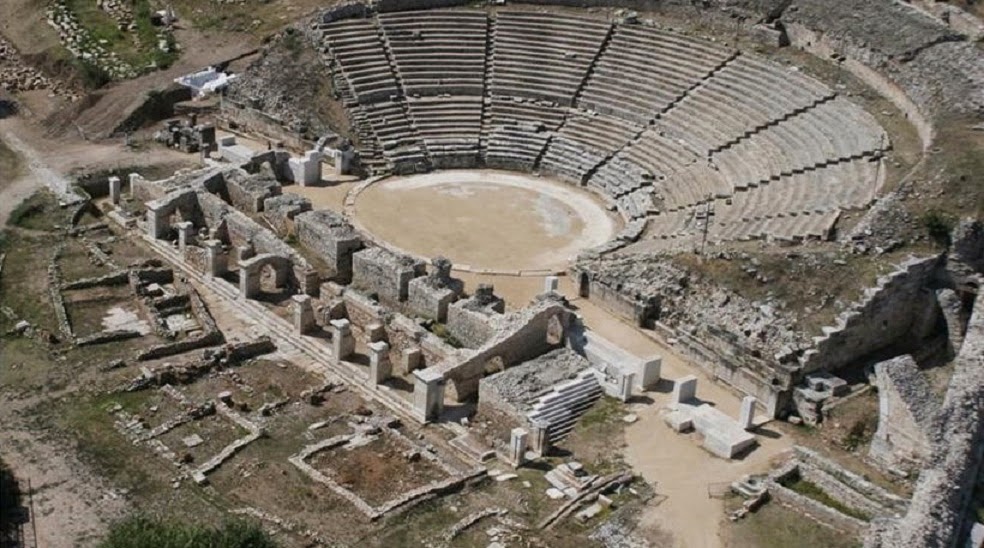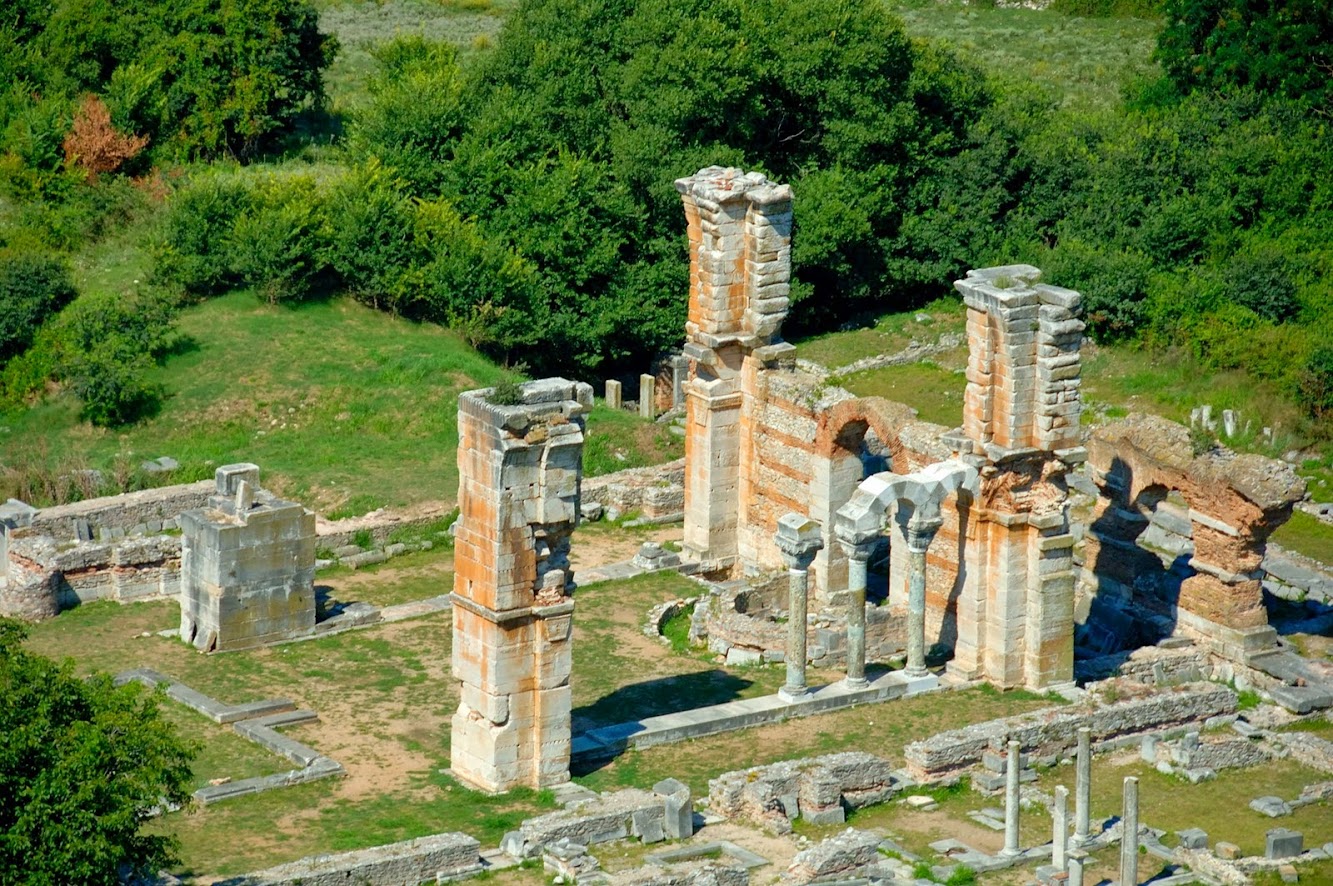






long historical path during which civilizations intersected and developed,”
writes UNESCO’s official site [Credit: Protothema]
Criteria include recognition of the sites as outstanding examples representing major stages of the world’s history or as masterpieces of human creative genius and, with that criteria in mind, the archaeological site of Philippi undoubtedly deserves a place in that list.
The candidacy of the ancient site for UNESCO’s World Heritage List was revealed by the Theocharakis Foundation in Athens on Monday. The well-known list already includes 17 Greek sites, with the last Greece-based entry being the Old Town of Corfu.
“The area of Philippi hosts a series of archaeological monuments, witnesses to a long historical path during which civilizations intersected and developed,” writes UNESCO’s official site for this amazing ancient city located in eastern Macedonia.
Philippi was established by the king of Macedon, Philip II in 356 BC. This ancient city, most important archaeological site in the eastern Macedonia region of northern Greece, had walled fortifications, a theatre, several public buildings and private houses.
The milestone battle of Philippi, which took place outside the western city walls in 42 BC, was a turning point in the area’s history. The site was conquered by Octavian and, as a Roman colony, developed into a financial, administrative, and artistic centre.
Another important event that marked the city’s history was the foundation of the first Christian Church on European soil by the Apostle Paul in 49/50 AD.
Source: Protothema [March 04, 2015]